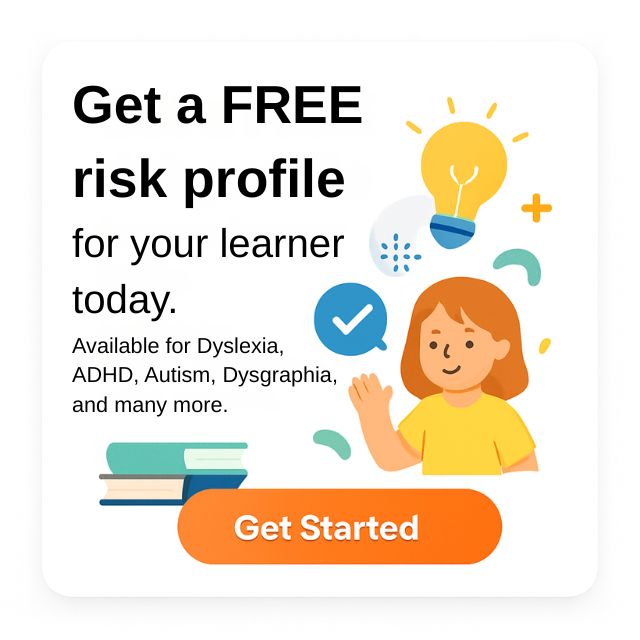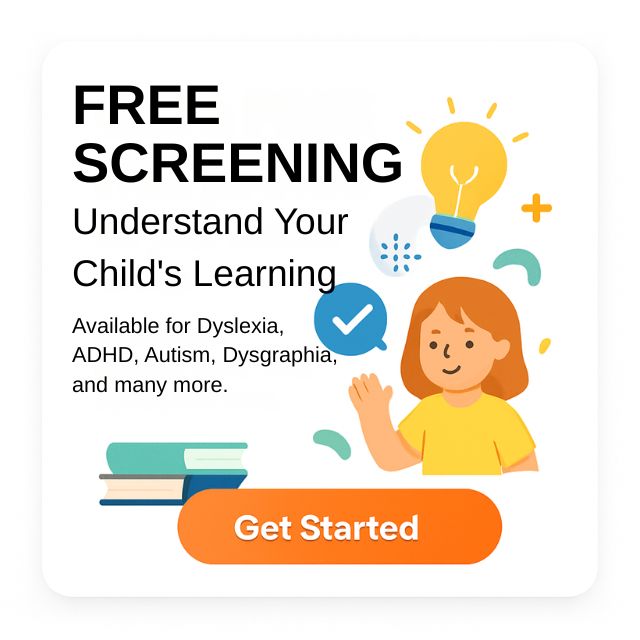How to spot Dyscalculia?
How to spot Dyscalculia?
Learning Disability Symptoms
Let’s be real, Math is a difficult subject for many students but with regular practice, some students get the hang of it. However, what happens when even practicing math can’t help a child grasp the concept of math? What do we call this learning difficulty? We call it Dyscalculia. Dyscalculia is a learning disability that makes it difficult for children to understand the concept that governs the rules of math. This learning disability shows up the moment children start learning math in school.
Lets not twist Dyslexia with Dyscalculia as Dyscalculia is a specific learning disability that only affects how children learn math, whereas Dyslexia is a learning disability that affects the child’s ability to read and write. In other words, a child can excel in many subjects such as English or history, but can struggle in math.
How to spot Dyscalculia?
Dyscalculia is not the easiest learning disability to spot as it differs from person to person depending on their age and development stage. So what are the common signs of Dyscalculia?
- Difficulty in understanding the meaning of concepts or quantities such as biggest to smallest
- Difficulty in knowing that 5 and Five are the same thing, and that both mean five items
- Math concepts such as multiplication, division, fractions, carrying, and borrowing are difficult to understand or remember.
- It is difficult to count money or make change.
- If asked to complete a mathematical task, they have difficulty in explaining the mathematical process or demonstrating their work
- An inability to estimate time or judge speed or distance
- Solving problems by holding numbers in their heads
What are the causes of Dyscalculia?
There is not much research conducted about Dyscalculia. Therefore to pin-point the exact causes of Dyscalculia is difficult as it again differs from person to person. However following are the potential causes that can be looked into.
Genetics:
According to research, children with Dyscalculia may have parents or members of their family who also struggle with math in the same way. Dyscalculia has been associated with some genetic disorders, such as Turner’s syndrome, Fragile X syndrome, etc.
Environment:
Dyscalculia may also be caused by the child’s environment. Preterm birth, alcohol exposure in the womb, and low birth weight may affect brain development.
Brain Injury:
Any type of brain injury a child may have suffered can result in what researchers call “acquired dyscalculia.”
Just to be clear, not all difficulties with math lead to Dyscalculia, it can also be a form of math anxiety. Lack of proper instructions and materials or a mental health issue related to anxiety, depression can also be a reason why a child may have difficulty in math. To know all this, an accurate assessment is necessary for a proper diagnosis.
To know more about Dyscalculia, its symptoms and treatment, get in touch with Dr. Anupma Sethi at +1-669-900-2315
2411, Old Crow Canyon Road, Suites 140, San Ramon, CA 94583, USA
anupma@empowerkidz.com
+1 (669) 900-2315
© Copyright 2021 EmpowerKidz
Designed & Developed by Congruence Digital



Leave a Reply